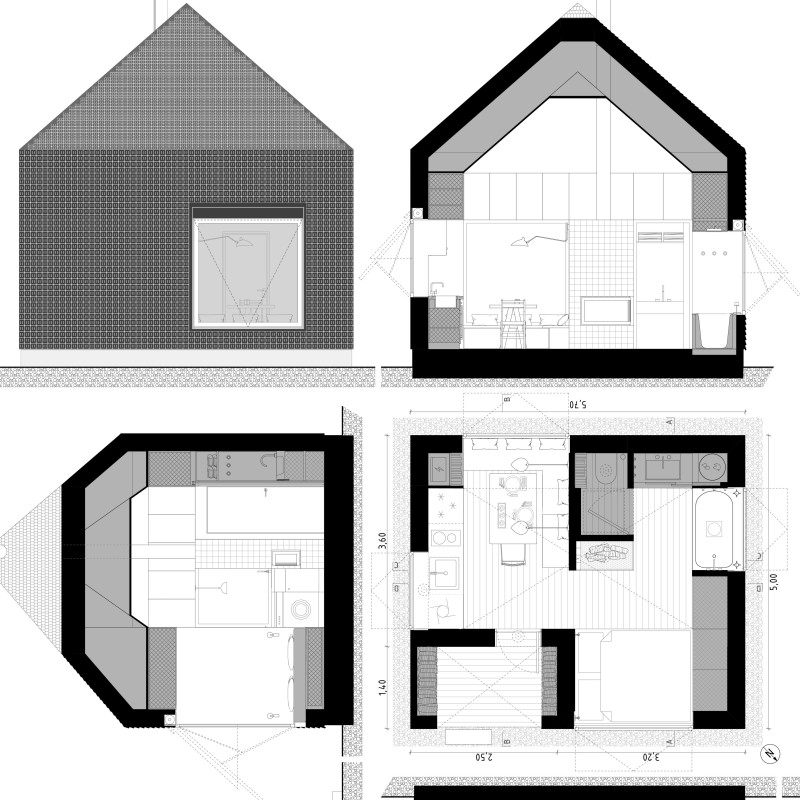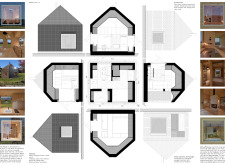5 key facts about this project
Alcove House is a compact residential design that prioritizes efficiency and sustainability. Located in an area that promotes small living spaces, the house covers only 25 m² and organizes its essential functions around a central fireplace. Drawing inspiration from a snail shell, the layout optimizes every corner, ensuring that comfort and usability co-exist within a limited footprint.
Design Concept
Inside Alcove House, four distinct areas are set around the central hearth: the kitchen, dining room, bedroom, and bathroom. This arrangement encourages a sense of togetherness while still allowing for privacy in each space. Each area is flooded with natural light through square windows placed within thoughtfully designed niches, creating a warm and welcoming environment.
Material Selection
Cedar wood has been chosen for the walls, ceiling, and floor. This choice adds warmth and helps with insulation. The fireplace features Moroccan Zellige tiles, which add visual interest and connect the design to local craftsmanship. Together, these materials support the overall aim of sustainability while enhancing the living experience.
Construction Methodology
The structure uses a wooden framework, making it lightweight and sturdy. The roof is designed in two layers, covered with shingles and solar cells, promoting energy efficiency. The design incorporates biological sewage treatment along with physical microfiltration to manage water responsibly. These features reflect a strong commitment to environmental considerations.
Technical Features
Solar energy is harnessed through solar cells placed on the southwest and southeast sides of the roof and walls, allowing for an independent power supply. Heating comes from the fireplace as well as an underfloor heating system that optimizes heat usage. The walls are thick enough to accommodate both water heaters and batteries, providing practical energy solutions. Additionally, discreet sun blinds within the windows help prevent overheating, ensuring comfort for the occupants.
Alcove House exemplifies modern living by successfully combining practical design and environmental awareness within a compact space, offering a balanced approach to everyday life.


















































